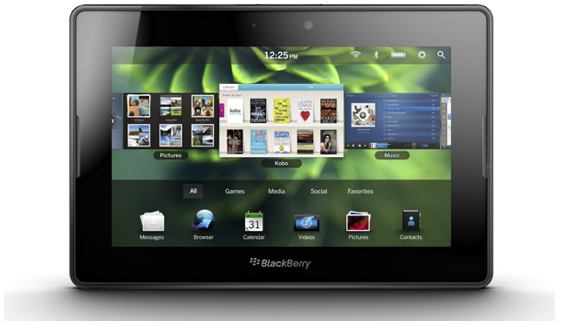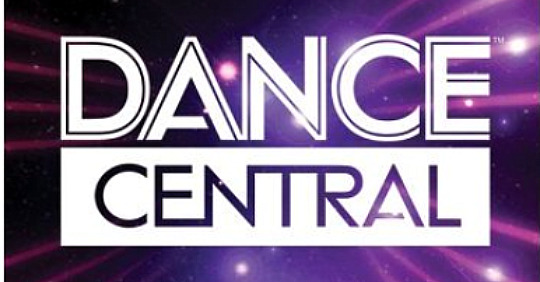Sony launches the WF-1000XM6 in South Africa with upgraded noise cancelling, better call clarity and premium sound. Pricing starts at R7,999.
Everyone calm down, RIM is going to be just fine


Research In Motion recently announced a lower than expected outlook for the upcoming quarter, making its investors nervous and dropping its stock price by more than 10% on the Toronto Stock Exchange.
Following the Wall Street carnage and RIM’s 2011/2012 roadmap, analysts are calling BlackBerry a “broken brand”, while pundits are now predicting another “burning platform” letter signed by the smartphone giant’s co-CEOs and some even go so far as to parallel RIM to Palm, suggesting that it could turn into the next big prize in the mobile industry’s consolidation.
Can everyone please calm down?
Money talks
RIM shipped 14.9-million BlackBerries in the last quarter meeting the high end of its estimates and earning them US$934-million (US$1.78 per share), up from US$710-million (US$1.27 per share) year over year. These quarterly earnings beat analyst estimates which were predicting US$1.75 per share. In terms of revenue for the quarter, RIM delivered slightly under the US$5.65-billion estimate, managing US$5.56-billion, but up from $4.08-billion for the same quarter last year.
At the end of its fiscal year ending February 28, RIM had US$1.79-billion in cash and US$330-million in short term investments and managed to increase sales for the year by 43%, moving a total of 52.3-million handsets worldwide. These figures put the company in 4th place with a 14,9% share of the global smartphone market, only slightly behind Apple’s 15.7% share.
It’s clear then that RIM is not Palm, but if the company is in seemingly good shape what spooked its investors? Two things.
Firstly, although internationally RIM is doing just fine, it has experienced negative growth in terms of smartphone market share, for the last four quarters in North America.
Secondly, RIM’s outlook for the upcoming quarter isn’t all that positive. It expects its quarterly revenue to drop to US$5.2 to US$5.5 billion and its earnings per share to fall to US$1.47 to US$1.55 a share. The reason for investor attrition lies in RIM’s explanation for their lower estimate, which includes a lower average selling price for its handsets, “the risk of potential disruption in RIM’s supply chain as a result of the recent earthquake in Japan” and the kicker: an increased level of investment in its upcoming PlayBook tablet.
Let’s take a look at why the PlayBook has investors worried, and why RIM will be selling it’s older generation BlackBerries at a reduced price.
The BlackBerry PlayBook
The lone analyst with a forecast above RIM’s full-year figure, Deutsche Bank’s Brian Modoff, dropped his estimate following RIM’s earnings report and suggested clients sell their shares. Why? He doesn’t believe RIM is wise on betting the farm on QNX, which makes its first appearance on the BlackBerry PlayBook tablet.
The PlayBook can run native C++ QNX apps, Java and Android apps. In addition the tablet also supports Adobe AIR, Flash, HTML5, and the BlackBerry WebWorks SDK. Modoff sees this as problematic and was quoted as saying: “RIM will fragment itself as they support multiple run-times.”
Say what now? Most mature operating systems support multiple run-times. Lest we forget, Microsoft Windows support multiple run-times and it currently owns about 89% of the computer OS market.
As for RIM’s decision to support Android, Jean-Louis Gassée, partner at Allegis Capital and a long-time tech veteran concludes that RIM is insane for launching an “immature product and trying to compensate for a dearth of applications with a misleading claim of compatibility with the wrong version of Android”. Dan Frommer from Business Insider also lambasted RIM’s decision to only support up to Android version 2.3.
There are two good reason for that.
Firstly, there are only about 100 Honeycomb tablet apps currently available, as opposed to more than 100 000 for smartphones.
How will smartphone apps scale on a tablet? Well ask Samsung. They managed to sell over a million 7-inch Samsung Galaxy Tabs, which run apps in two modes, full screen – with a possible loss in quality -, or at the original resolution, framed in a black border.
What about performance? Co-CEO Jim Balsillie noted that the PlayBook’s virtual machine for Android apps could have performance issues, but of course it is in RIM’s best interest to downplay Android, as it would much rather have developers create native QNX apps. Despite early criticism of the PlayBook’s pre-release SDK, Balsillie said that games and other resource-heavy apps will want to be coded specifically for the PlayBook’s QNX platform using the SDK.
The second reason why RIM is supporting only smartphone Android apps on the PlayBook at launch, is because Google hasn’t made the Honeycomb source code open source yet, claiming it has more refining of the OS to do before it can deliver the code for use in phones and gadgets.
Setting aside for a moment that mainstream consumers would consider the PlayBook over Apple’s iPad juggernaut tablet, the PlayBook is very much targeted at RIM’s bread and butter market segment, the enterprise. Speaking to CIO Australia in Sydney, Dell’s global head of marketing for large enterprises and public organisations, concluded that Apple’s closed view, and high price made the iPad unappealing to CIOs.
Roadmap 2011/2012
It’s clear that RIM is going through a massive transformation right now. Modoff chose to see this in a negative light by saying: “We can think of few examples of companies with co-CEOs that have fared well. We believe the multiple-choice approach to OS is a symptom of conflicting strategies internally. Moreover, it appears that the company is building duplicate working groups in many areas. This is not only expensive, but is likely to hamper their ability to take decisive action.”
Those are strong words considering Balsillie has been co-CEO of RIM since 1992.
There are some truth in his statement however as RIM’s CTO David Yach confirmed during a RIM internal developer keynote that OS 6.1 is falling behind schedule due to miscommunication between teams in the critical path of the project. Right now RIM is pushing two different operating systems, OS 6.1 on 2011 smartphones, and QNX on the PlayBook, but the idea is to stop the fragmentation and bring RIM’s smartphone and tablet OSes together. In an effort RIM calls “Project Highlander”, they are championing the slogan “There Can Be Only One”, referring to their effort to centralize tools and processes and merge the best features of the traditional BlackBerry OS with the new QNX platform.
Slated for 2012, BlackBerry OS 7 looks to be RIM’s focus for merging both smartphones and tablets OS, but this has Modoff sounding off once again: “With no QNX on handsets until calendar 2012, we think RIM will likely continue to lose share to Android smartphones whose prices are rapidly falling.”
Although 2012 is still a while off, RIM will be leaning on sales of its cheaper devices running old versions of the BlackBerry OS, outside the lucrative North American and Western European markets.
Final thoughts
Even if the PlayBook is a complete failure, RIM’s continued international growth and their existing installed enterprise base will most likely sustain the smartphone giant through its transformation in the short term. Beyond that, unlike Nokia, RIM has admitted the shortcomings of their aged OS early on, and invested in QNX – with the PlayBook as Genesis – to see their smartphone business into the future.
The market for tablets in the enterprise is still wide open, and given RIM’s track record in the corporate world, the PlayBook might very well be the way that RIM defends its turf, but if Microsoft global chief strategy officer Craig Mundie is right and tablets are in fact just a flash in the pan, it’s good to know that RIM is hard at work building next generation BlackBerries for the future.
Even as a dramatic refresh of the BlackBerry looms to make it more competitive with the consumer oriented iOS and Android platforms, BlackBerry still enjoys enormous consumer mind share around the world. Mind share, something intangible, invaluable, and something that will probably more than anything, sustain them through their transition.

